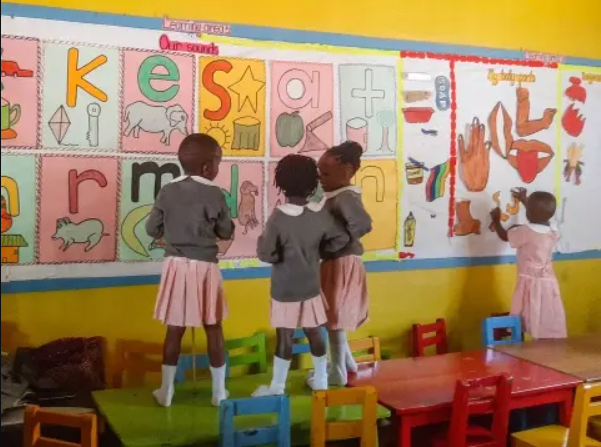While it’s encouraging that the Ugandan government is working to make elementary school free for all, there is still a long way to go before everyone in the country can benefit from this policy. Many families, especially those living in rural areas or with poor financial resources, face a big obstacle because pre-primary education is not free, unlike primary school. In order to lessen the impact of this disparity, this essay explores its consequences and calls for publicly financed pre-primary education.
Why Pre-Primary Education is Crucial:
The first few years of a child’s life are crucial because they set the stage for their future success in school and in society. While youngsters are still developing their brains and social abilities, pre-primary education is vital in laying the groundwork for a lifetime of learning. But things are looking rather bleak in Uganda right now: less than 10% of kids in the 3-5 age bracket attend officially recognized pre-primary schools, and 60% of those kids don’t get any formal education until they reach elementary school.
The Repercussions of Not Involving:
Less academic achievement, greater dropout rates, and widened income gaps are the results of a government-funded pre-primary education system that is not in place. Children who do not have access to pre-primary education encounter difficulties that limit their ability to catch up academically and negatively impact their future opportunities. The educational gap is further widened when children are enrolled in primary school at a young age due to financial constraints that prevent them from paying for pre-primary education. This practice leads to higher rates of repetition and more inefficiencies in the education system.
Financial Consequences:
Without publicly financed pre-primary education, Uganda’s economic development is impeded, and this is true even before considering the direct effect on children’s scholastic trajectory. There is strong evidence that spending money on preschool and kindergarten can pay off handsomely; in fact, research suggests that every pound spent on these programs could bring in as much as sixteen shillings in return. In addition to improving children’s future employability, increasing access to pre-primary education allows parents, especially mothers, to join the workforce and contribute to economic growth as a whole.
Combating Inequalities:
In light of the critical need to close this achievement gap, a number of Ugandan stakeholders have demanded immediate action to ensure that all children have access to free and mandatory pre-primary education. Early childhood development centers should be set up in all publicly-funded primary schools in Uganda, according to President Yoweri Museveni. But for this dream to come true, the government must work together to provide enough funding for schools, following global examples like the UN’s 2030 Agenda for Sustainable Development.
Ideas on What to Do Next:
Human Rights Watch and the Initiative for Social and Economic Rights (ISER) call for mandatory free preschool education for all Ugandan children as a means to end the country’s pre-primary education inequality. This involves progressively expanding this provision to cover more years of pre-primary education, in addition to making the first year of this program mandatory. If Uganda is serious about providing its children from all socioeconomic backgrounds with an equitable opportunity to get a high-quality education, it must take these steps.
In sum:
To sum up, many children’s futures are at risk, and inequity is perpetuated, because pre-primary education in Uganda is not publicly supported. To fix this, the government, NGOs, and international partners must work together to make pre-primary education a top priority and spend heavily in it. Uganda can set the stage for a more egalitarian and prosperous future by ensuring all children have a solid foundation.



















